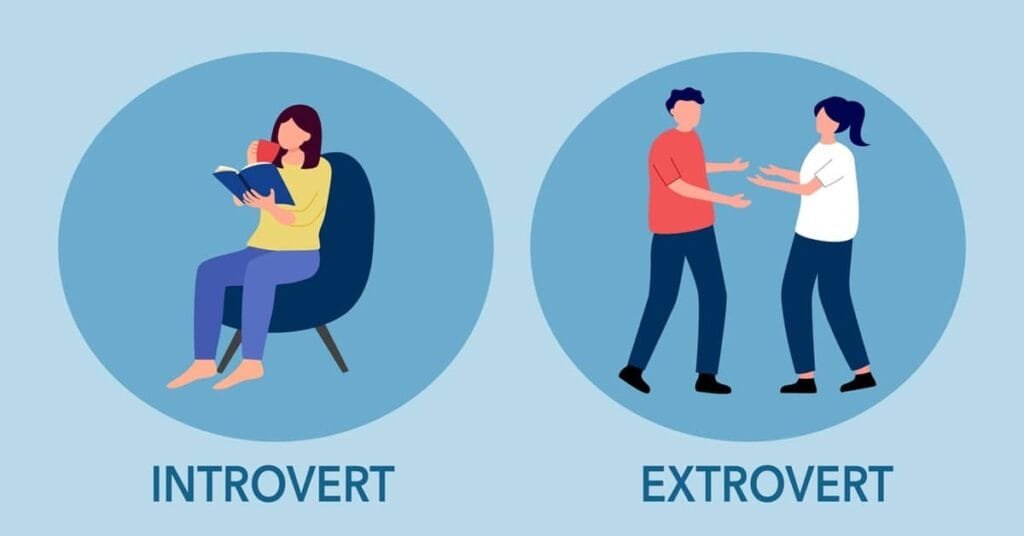Art of Creative Writing
Introduction
Creative writing is a journey that allows the imagination to run wild and guides the mind on captivating adventures. It’s a discipline that blends technique and boundless creativity to craft engaging stories, evocative poetry, and thought-provoking essays. Mastering the art of creative writing demands both inspiration and effort, and this guide is here to help you along the way.
Understanding Creative Writing
1. What Is Creative Writing?
Creative writing refers to any form of writing that goes beyond conventional norms to express ideas, emotions, and stories uniquely and compellingly. It includes styles like fiction, poetry, drama, memoirs, and even experimental forms of storytelling.
2. Why Is Creative Writing Important?
- It fosters imagination and creativity.
- It enhances emotional intelligence.
- It develops articulation and persuasive skills.
- It provides an outlet for self-expression.
3. Forms of Creative Writing
- Fiction: Novels, short stories, flash fiction.
- Poetry: Sonnet, free verse, haiku, and more.
- Drama: Playwriting, screenwriting.
- Non-Fiction: Memoir, personal essays, creative non-fiction.
Steps to Improve Your Creative Writing
1. Read Widely
Reading expands your vocabulary, exposes you to various styles, and broadens your understanding of storytelling techniques.
2. Write Regularly
Set aside time daily to practice writing. The more you write, the better you become.
3. Edit and Revise
First drafts are rarely perfect. Spend time refining your work through editing and rewriting.
4. Seek Feedback
Join writing groups or workshops to receive constructive critique and grow as a writer.
5. Challenge Yourself
Experiment with genres or perspectives you’ve never tried before. This expands your adaptability and skill.
Overcoming Writer’s Block
Writer’s block can feel like hitting a creative wall, but here are some strategies to move past it:
- Change your environment to spark new ideas.
- Use writing prompts or exercises.
- Work on something different to refresh your mindset.
- Set small, achievable writing goals.
- Take breaks and allow your mind to rest.
FAQs on Creative Writing
The allure of creative writing is undeniable. The ability to weave worlds with words, to evoke emotion and inspire thought through carefully crafted sentences, is a powerful and deeply human endeavor. However, the path to becoming a successful creative writer can often seem shrouded in uncertainty. Aspiring writers frequently grapple with fundamental questions about education, stylistic development, self-doubt, and the viability of a writing career. This essay aims to address these common concerns, offering insights and guidance for those seeking to navigate the multifaceted world of creative writing.
Q1: Do I need a degree in creative writing to be successful?
The simple answer is no, a degree in creative writing is not a prerequisite for success. However, it’s crucial to understand the nuance behind this statement. While a formal education isn’t mandatory, it can certainly provide a significant advantage, offering a structured environment for skill development and valuable networking opportunities.
A creative writing degree, whether a Bachelor of Arts (BA), Master of Fine Arts (MFA), or even a certificate program, provides a curriculum focused on honing specific writing skills. Workshops provide constructive criticism from peers and experienced instructors, forcing writers to engage with their work critically and analytically. Courses in literature, rhetoric, and literary theory broaden a writer’s understanding of the literary landscape, exposing them to diverse styles, techniques, and historical contexts. Furthermore, many programs offer opportunities to learn different forms of writing, such as poetry, fiction, screenwriting, and playwriting, allowing writers to explore their strengths and interests.
The structured environment of a creative writing program also cultivates discipline and encourages consistent writing practice. Deadlines, critiques, and assigned readings contribute to a routine that can be difficult to establish independently. This consistent engagement can significantly accelerate a writer’s development and help them overcome writer’s block and procrastination.
Beyond the purely academic benefits, a creative writing program provides access to a community of like-minded individuals. This network of writers, editors, and instructors can offer invaluable support, encouragement, and professional connections. Workshops foster collaboration and provide opportunities to build lasting relationships with peers who understand the unique challenges and rewards of the writing process.
However, it is important to acknowledge that a degree is not a guarantee of success. Many successful writers have forged their paths without formal training, relying instead on self-directed study, mentorship, and relentless practice. These writers often develop their skills through reading widely, attending workshops independently, joining writing groups, and seeking feedback from trusted mentors. The accessibility of online resources, writing courses, and literary journals has also democratized the field, making it easier than ever for aspiring writers to learn and connect without committing to a full degree program.
Ultimately, the decision to pursue a creative writing degree depends on individual circumstances and learning preferences. If a structured environment, consistent feedback, and access to a writing community are appealing, a degree program can be a worthwhile investment. However, with dedication, discipline, and a willingness to learn, success in creative writing is achievable even without formal education. The most important factor is a genuine passion for writing and a commitment to honing one’s craft.
Q2: How do I find my writing style?
Finding your writing style is a journey of exploration and self-discovery, not a destination to be reached overnight. It’s a process of understanding your voice, your interests, and the way you naturally express yourself through language. There’s no magic formula, but several strategies can help you uncover and refine your unique style.
Firstly, read voraciously and widely. Exposure to different genres, authors, and styles is essential for understanding the possibilities of language. Pay attention not only to what stories are being told, but also to how they are being told. Analyze the authors you admire. What specific techniques do they use? How do they create atmosphere? What is unique about their sentence structure, their word choice, and their rhythm? Understanding these elements can inform your own stylistic choices.
However, resist the temptation to simply imitate your favorite authors. While imitation can be a useful exercise in understanding different styles, the ultimate goal is to develop your own voice, not to replicate someone else’s. Instead, use your reading as a springboard for experimentation.
Secondly, write regularly and without judgment. The more you write, the more you’ll begin to identify patterns in your own work. Don’t worry about perfection or adhering to specific rules initially. Simply focus on getting your ideas down on paper. Experiment with different genres, points of view, and narrative structures. Try writing in different moods – humorous, serious, introspective, observational. Over time, you’ll start to notice which approaches feel most natural and authentic to you.
Consider keeping a journal or free writing regularly. These exercises allow you to explore your thoughts and feelings without the pressure of producing polished prose. They can also help you identify recurring themes and stylistic tendencies in your writing.
Thirdly, seek feedback and be open to criticism. Sharing your work with trusted readers – fellow writers, mentors, or critique partners – is crucial for gaining an outside perspective. Be prepared to receive both positive and negative feedback, and try to approach it with an open mind. Listen carefully to what your readers are saying, and ask clarifying questions if needed. Don’t take criticism personally, but use it as an opportunity to identify areas for improvement and refine your style.
Pay attention to the kind of feedback you consistently receive. Are readers consistently commenting on your strong dialogue? Your evocative imagery? Your penchant for long, complex sentences? This feedback can provide valuable clues about your stylistic strengths and weaknesses.
Fourthly, experiment with different techniques and tools. Try using different writing software, experimenting with different fonts and formatting, or using dictation software to capture your thoughts as they flow. Explore different writing prompts and exercises designed to push you outside of your comfort zone. Consider taking a class or workshop focused on a specific aspect of writing, such as voice, style, or character development.
Finally, be patient and trust the process. Developing a unique writing style takes time and effort. Don’t be discouraged if you don’t find your voice overnight. The most important thing is to keep writing, keep reading, and keep experimenting. Over time, your style will emerge organically as you refine your skills and deepen your understanding of yourself and your craft. Remember that your style is not static; it will continue to evolve and grow as you gain experience and broaden your horizons.
Q3: What if I feel my writing isn’t good enough?
Feeling inadequate about one’s writing is a common experience, especially for aspiring writers. This feeling, often referred to as “impostor syndrome,” can be debilitating, leading to procrastination, self-doubt, and even abandonment of writing altogether. However, it’s important to recognize that these feelings are often unfounded and can be overcome with the right strategies and mindset.
Firstly, understand that self-doubt is normal. Almost every writer, regardless of their level of experience or success, experiences moments of self-doubt. Even renowned authors have admitted to feeling insecure about their work at times. Recognizing that these feelings are universal can help you feel less alone and less defined by them.
Secondly, challenge your negative thoughts. When you find yourself thinking “My writing isn’t good enough,” ask yourself why you feel that way. Is there concrete evidence to support this belief, or is it simply a feeling based on unrealistic expectations or comparisons to other writers? Often, you’ll find that your negative thoughts are based on subjective opinions rather than objective facts.
Try reframing your negative thoughts into more constructive ones. Instead of thinking “My writing is terrible,” try thinking “My writing has room for improvement,” or “I can learn and grow as a writer.” Focus on the specific areas where you want to improve, and create a plan for addressing them.
Thirdly, focus on the process, not the product. Instead of fixating on the end result, try to enjoy the act of writing itself. Focus on the creative process, the joy of exploring ideas, and the satisfaction of crafting sentences. When you’re focused on the process, you’re less likely to be overly critical of your work and more likely to be open to experimentation and discovery.
Set realistic goals for yourself, and celebrate your progress along the way. Don’t expect to write a masterpiece every time you sit down to write. Instead, focus on making small, consistent improvements.
Fourthly, seek feedback and be selective about your sources. Sharing your work with trusted readers can provide valuable insights and help you identify areas for improvement. However, it’s important to be selective about who you share your work with. Choose readers who are supportive, constructive, and knowledgeable about writing. Avoid sharing your work with people who are overly critical, dismissive, or who don’t understand your genre or style.
Remember that feedback is subjective, and not all feedback is created equal. Take the feedback that resonates with you and that you believe will help you improve, and disregard the rest. Don’t let one negative comment derail your progress or undermine your confidence.
Fifthly, compare yourself to yourself, not to others. Comparing yourself to other writers is a surefire way to feel inadequate. Every writer is on their own journey, and everyone progresses at their own pace. Instead of comparing yourself to others, focus on your own growth and development. Compare your current work to your past work, and celebrate how far you’ve come.
Remember that even successful writers have faced rejection and criticism along the way. Don’t let setbacks discourage you from pursuing your passion. Learn from your mistakes, keep writing, and never give up on your dreams.
Finally, practice self-compassion. Be kind and gentle with yourself. Acknowledge that you’re not perfect and that you’re going to make mistakes along the way. Treat yourself with the same compassion and understanding that you would offer to a friend who is struggling. Remember that writing is a journey, not a destination, and that every writer faces challenges and setbacks along the way.
Q4: Can I make a career out of creative writing?
The question of whether one can make a career out of creative writing is complex and often met with skepticism. While it is undoubtedly challenging, it is certainly possible. However, it requires a combination of talent, dedication, business acumen, and a realistic understanding of the market.
The traditional image of the struggling artist, living in poverty while pursuing their creative passion, is a stark contrast to the reality of making a living as a writer in the 21st century. While some writers achieve immense success and financial security, the vast majority earn a modest income through a combination of different writing-related activities.
One of the most common paths to a writing career is to become a published author. This can involve writing novels, short stories, poetry, or non-fiction books. However, landing a publishing deal can be extremely competitive, and even after being published, there is no guarantee of financial success. Book sales are often unpredictable, and authors typically receive only a small percentage of the revenue generated by their books.
Another option is to pursue freelance writing. This involves writing articles, blog posts, website content, marketing materials, and other types of writing for various clients. Freelance writing can offer more consistent income than publishing books, but it requires strong marketing skills, the ability to meet deadlines, and a willingness to work on a variety of projects.
Content writing and copywriting are lucrative avenues that cater to businesses needing compelling website content, marketing materials, and advertising copy. While not purely “creative writing,” these roles demand creative thinking and the ability to craft engaging narratives that resonate with specific audiences.
Screenwriting and playwriting offer another potential career path, but these fields are also highly competitive. Success in screenwriting often depends on networking and building relationships with industry professionals. Playwriting can be a more niche market, but it can offer opportunities to work with theaters and production companies.
Teaching creative writing can provide a stable income while allowing you to share your passion for writing with others. This can involve teaching at universities, community colleges, or private workshops. However, teaching positions are often competitive, and they may require advanced degrees or significant experience.
Editing and proofreading are essential services for writers and publishers, and they can provide a reliable source of income for skilled editors. This work requires strong attention to detail, excellent grammar skills, and a deep understanding of writing conventions.
To increase your chances of making a career out of creative writing, it’s important to develop a strong portfolio of work. This can include published articles, blog posts, short stories, or even samples of your writing that you’ve created specifically for your portfolio.
Build a professional online presence. Create a website or blog to showcase your work and connect with potential clients or publishers. Use social media to promote your writing and engage with other writers.
Network with other writers and industry professionals. Attend writing conferences, workshops, and other events to meet people and build relationships. Joining writing organizations can provide valuable resources and support.
Be persistent and resilient. Rejection is a part of the writing process, and it’s important to not let it discourage you. Keep writing, keep submitting your work, and keep learning from your mistakes.
Finally, be realistic about your financial expectations. It’s unlikely that you’ll become a millionaire writer overnight. Be prepared to supplement your writing income with other sources of income, such as part-time jobs or freelance work.
In conclusion, making a career out of creative writing is challenging but achievable. It requires a combination of talent, dedication, business acumen, and a realistic understanding of the market. By developing your skills, building a strong portfolio, networking with other writers, and being persistent and resilient, you can increase your chances of turning your passion for writing into a fulfilling and sustainable career. The key is to be adaptable, entrepreneurial, and committed to honing your craft while actively seeking opportunities in the ever-evolving landscape of the creative writing industry.
Final Thoughts
Creative writing is as much about passion and dedication as it is about skill and creativity. Each word you pen brings you closer to discovering the depths of your imagination and the power of expression. By immersing yourself in practice, embracing the learning process, and facing challenges head-on, you can truly master the art of creative writing.


